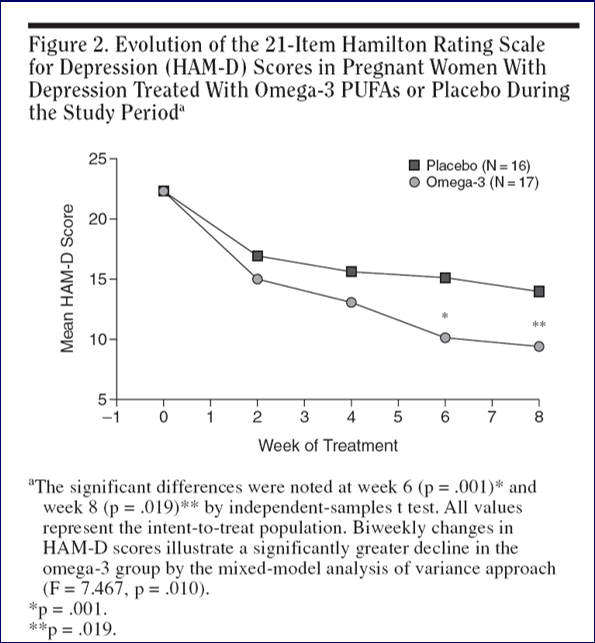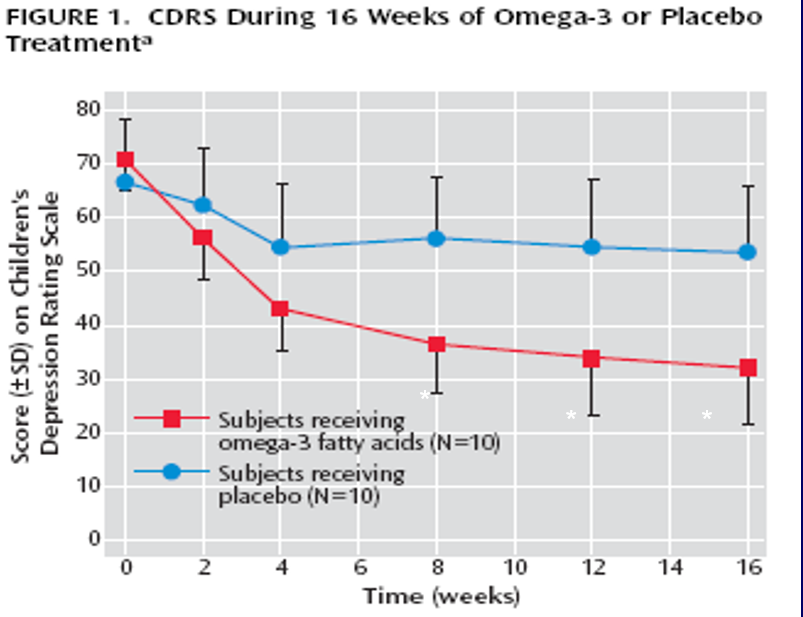Published on June 19, 2017
There are over 28,000 published research papers supporting the positive health benefits of omega-3 fatty acids. This article will focus on some of the research around brain health, specifically depression. As we continue to support the Omega-3 Index Test we will profile other research about omega-3s. They are a family of fats which, like vitamin D, are important for overall good health and for disease prevention.
Approximately 8% of the brain’s weight is comprised of omega-3 fatty acids, these fatty acids are found within the neural membranes providing help with key brain function such as electrochemical transmission and signal reception. In addition, they are thought to protect from oxidative stress, inflammation, and cumulative destruction. The amount of omega-3s present in your brain could be the difference between whether you succumb to injury or ward off the inflammation or attack.
Research Study in Taiwan
Researchers from Taiwan, KP Su et al., held an 8-week, double-blind, placebo-controlled trial comparing omega-3 (2.2 g EPA + 1.2 g DHA daily) with placebo (olive oil) in pregnant women with major depressive disorder. No psychotropic agent was given 1 month prior to or during the study period. They used the Hamilton Rating Scale for Depression (HAM-D) and scored each participant every 2 weeks. Here are the results

J Clin Psychiatry. 2008 Apr; 69(4):644-51.
Note that depression scores for those taking omega-3s dropped smoothly, and were significantly different from the scores of those on placebo after 6 weeks.
Research Study in Israel
Researchers in Israel, Hanah Nemets et al., ran a double-blind, placebo-controlled trial on 20 children, ages 8-12, for 16-weeks, measuring depression through the Childhood Depression Rating Scale (CDRS), Childhood Depression Inventory (CDI) and Clinical Global Impression (CGI). The CDRS and CGI are clinician rated, the CDI is self-rated by the child at each visit. Ratings were done at baseline, 2, 4, 8, 12, and 16 weeks.
The treatment group was given 1,000 mg daily (approx. 400 EPA + 200 DHA) and the placebo was olive oil or safflower oil.

Nemets et al. Am J Psychiatry. 2006 Jun; 163(6):1098-1100.
“The effect of omega-3 is highly significant. Among the children on omega-3 treatment, seven out of 10 had a greater than 50% reduction in CDRS scores. Of those on placebo, zero out of 10 had a greater than 50% reduction in CDRS scores (p=0.003). Four out of 10 children in the omega-3 group met remission criteria of …a CDRS score <29 at study exit; no subject in the placebo group met these criteria (p=NS).”
Are you depressed? Might omega-3 supplements work for you?
What is your Omega-3 Index? Do you know? Do you think it is above 8% – the recommended level for brain health and disease prevention? Find out today! Log on to the shop to get your tests and see for yourself if it helps with your top health priorities! Make sure you track your results before and after, about every 6 months.


